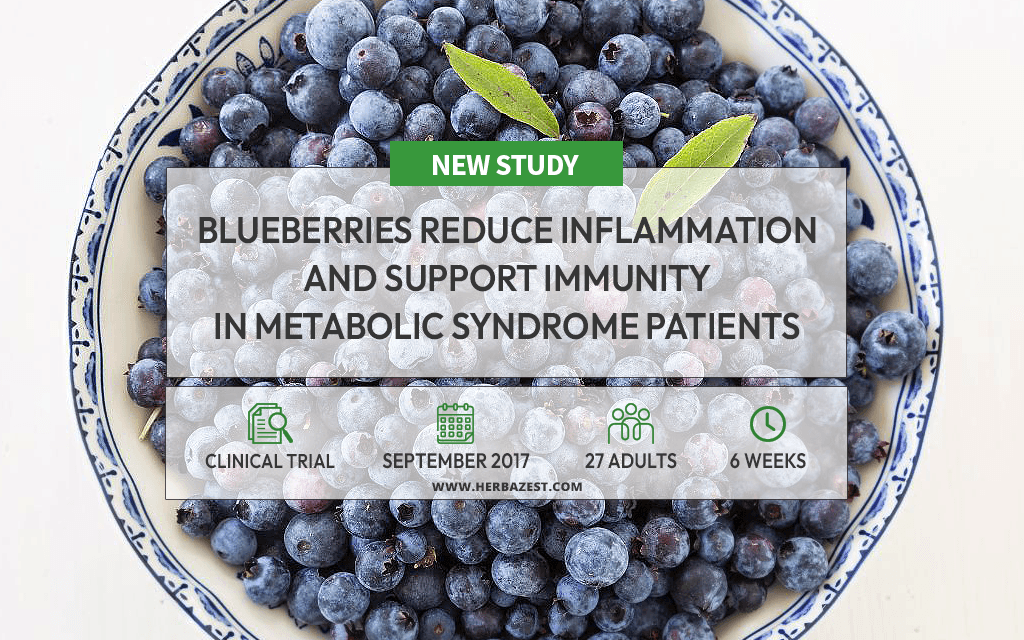Metabolic syndrome is a cluster of conditions that occur together, elevating one's risk of heart disease and type 2 diabetes. It's been associated with oxidative stress and inflammation, among others.
Blueberries are one of the most nutritious fruits out there, mainly due to their high antioxidant content. These powerful characteristics make them a promising functional food for reducing inflammation and oxidative stress, which are key approaches in managing metabolic syndrome.1
The Study
This randomized, double-blind, placebo-controlled trial was conducted at the Pennington Biomedical Research Center in Baton Rouge, Louisiana, USA. It involved 27 adults with metabolic syndrome, assigned to two groups.
For six weeks, participants in the intervention group drank two daily yogurt and skim milk smoothies with 22.5 grams of freeze-dried blueberry powder each (a total of 45 grams of blueberry powder per day, which is an equivalent of two cups of fresh blueberries).
Participants in the placebo group, on the other hand, consumed an identical smoothie without the blueberry powder.
To evaluate the effects of blueberries on inflammation and oxidative stress, researchers assessed various markers before and after the trial.
The Results
Participants drinking blueberry smoothies showed significantly reduced oxidative stress markers, namely superoxide and total reactive oxygen species (ROS) in whole blood and monocytes.
The blueberry group also had substantially higher myeloid dendritic cell levels in comparison to the placebo group. Myeloid dendritic cells are crucial for immune regulation.
Blueberry consumption also decreased the expression of inflammatory markers in the monocytes, such as TNF-α, IL-6, and TLR4. Monocytes are a type of leukocytes, or white blood cells, which help the body fight infection and diseases.
What Does this Mean?
As confirmed by the results of this trial, blueberries have immunomodulatory effects as well as lower stress and inflammation in the monocytes in people with metabolic syndrome.
Blueberries' benefits for people with metabolic syndrome have already been shown in initial studies. It's thought that they exert these effects through modulation of leukocytes, which are essential for immunity.
Other herbs that may be useful for people with metabolic syndrome are tomatoes, pears, mangoes, and papaya.
Sources
- Food and Function, Blueberry supplementation attenuates oxidative stress within monocytes and modulates immune cell levels in adults with metabolic syndrome: a randomized, double-blind, placebo-controlled trial, 2017
Footnotes:
- The Journal of Nutrition. (2009). Dietary Blueberry Attenuates Whole-Body Insulin Resistance in High Fat-Fed Mice by Reducing Adipocyte Death and Its Inflammatory Sequelae. Retrieved August 30, 2022 from https://www.ncbi.nlm.nih.gov/pmc/articles/PMC2709302/





